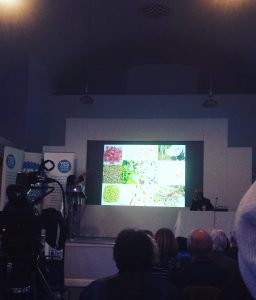Yes to Life Annual Conference 2017

As you know I attended the Yes to Life annual conference in London a couple of weeks ago. Yes to Life are a brilliant charity supporting those with acancer diagnosis and their families.
Yes to Life empower people with cancer to make informed decisions about their cancer care options, they provide information to guide people through the often confusing options for care and lifestyle choices. Their aim is to enable people to make informed choices, to simplify the complex and facilitate access to expert knowledge.
I wanted to share some of the highlights and links to further resources that were mentioned so you can continue with your own research.
Arguably the anti inflammatory dietary advice offered applies to all of us, as a route to continued wellness and as preventative for the prevalent lifestyle conditions we see on the rise in this country, all of which are avoidable.
A lot of conversation was around lifestyle medicine, culinary medicine, transforming stress and health training. There was discussion around changes to medics training from January 2018 to include these options and an holistic health perspective, so that they might discuss massage therapy, exercise, nutrition alongside medical intervention with their patients.
Vit C – High-dose vitamin C has been studied as a treatment for patients with cancer since the 1970s. Laboratory studies have shown that high doses of vitamin C may slow the growth and spread of prostate, pancreatic, liver, colon, and other types of cancer cells
B17 – conference speakers very confident of its efficacy
Curcumin – a bright yellow chemical produced by some plants. It is the principal curcuminoid of turmeric, a member of the ginger family
Vit D – Numerous epidemiologic studies have shown that higher intake or blood levels of vitamin D are associated with a reduced risk of colorectal cancer
Phytochemical – compounds that are produced by plants (“phyto” means “plant”). They are found in fruits, vegetables, grains, beans, and other plants. Some of these are believed to protect cells from damage that could lead to cancer
Polyphenols -a specific phytochemical that we get through certain plant-based foods. They’re packed with antioxidants and potential health benefits
Macrobiotic diet
Anti inflammatory diet
Sophie Sabbage – The Cancer Whisperer, a patient perspective
the British Society for Integrative Oncology

I hope this of value and interest and look forward to seeing you soon.
Jayne
x



